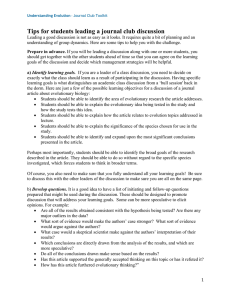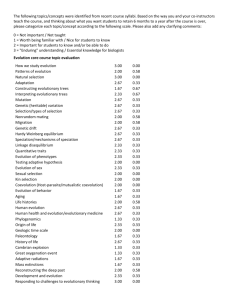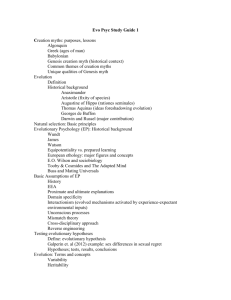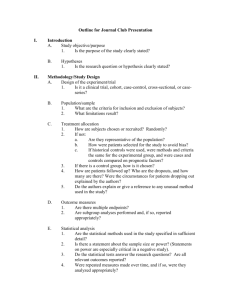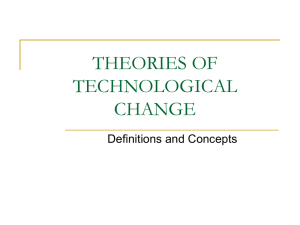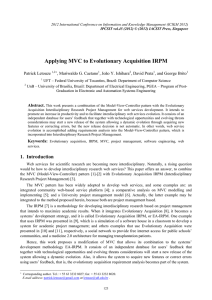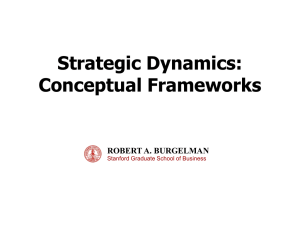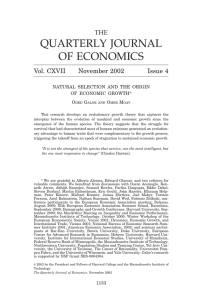Technology Strategy: A Review of Burgelman & Rosenbloom's Paper
advertisement
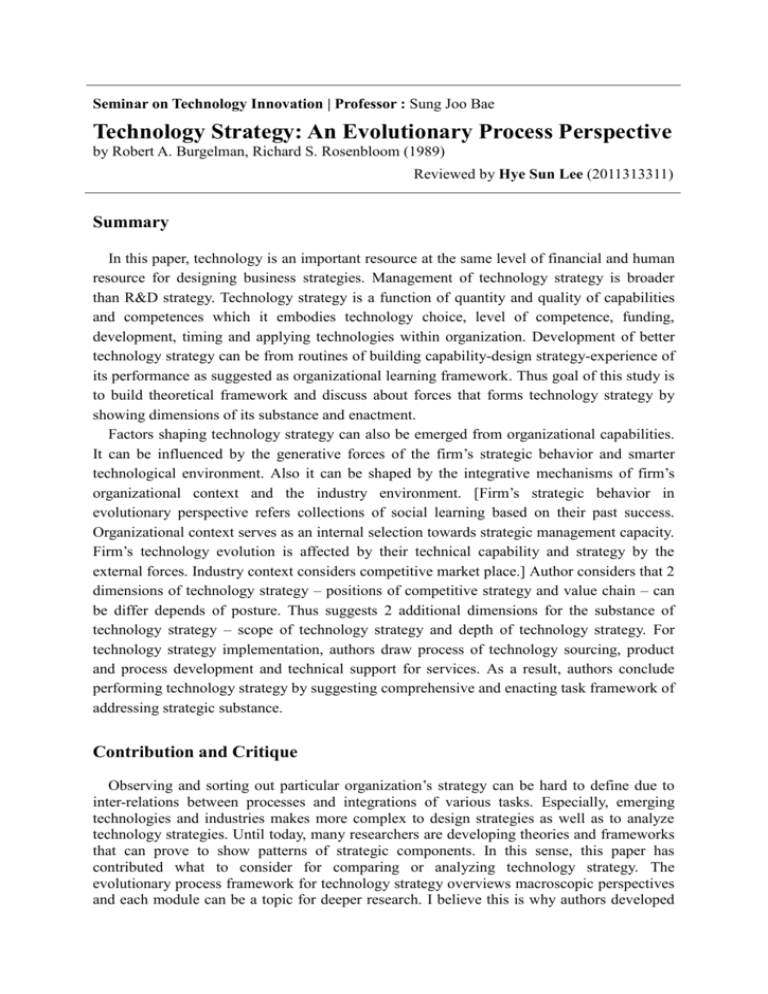
Seminar on Technology Innovation | Professor : Sung Joo Bae Technology Strategy: An Evolutionary Process Perspective by Robert A. Burgelman, Richard S. Rosenbloom (1989) Reviewed by Hye Sun Lee (2011313311) Summary In this paper, technology is an important resource at the same level of financial and human resource for designing business strategies. Management of technology strategy is broader than R&D strategy. Technology strategy is a function of quantity and quality of capabilities and competences which it embodies technology choice, level of competence, funding, development, timing and applying technologies within organization. Development of better technology strategy can be from routines of building capability-design strategy-experience of its performance as suggested as organizational learning framework. Thus goal of this study is to build theoretical framework and discuss about forces that forms technology strategy by showing dimensions of its substance and enactment. Factors shaping technology strategy can also be emerged from organizational capabilities. It can be influenced by the generative forces of the firm’s strategic behavior and smarter technological environment. Also it can be shaped by the integrative mechanisms of firm’s organizational context and the industry environment. [Firm’s strategic behavior in evolutionary perspective refers collections of social learning based on their past success. Organizational context serves as an internal selection towards strategic management capacity. Firm’s technology evolution is affected by their technical capability and strategy by the external forces. Industry context considers competitive market place.] Author considers that 2 dimensions of technology strategy – positions of competitive strategy and value chain – can be differ depends of posture. Thus suggests 2 additional dimensions for the substance of technology strategy – scope of technology strategy and depth of technology strategy. For technology strategy implementation, authors draw process of technology sourcing, product and process development and technical support for services. As a result, authors conclude performing technology strategy by suggesting comprehensive and enacting task framework of addressing strategic substance. Contribution and Critique Observing and sorting out particular organization’s strategy can be hard to define due to inter-relations between processes and integrations of various tasks. Especially, emerging technologies and industries makes more complex to design strategies as well as to analyze technology strategies. Until today, many researchers are developing theories and frameworks that can prove to show patterns of strategic components. In this sense, this paper has contributed what to consider for comparing or analyzing technology strategy. The evolutionary process framework for technology strategy overviews macroscopic perspectives and each module can be a topic for deeper research. I believe this is why authors developed integrated framework by combining experiences and substances. However, relation between substance of technological strategy and performance may need to be researched more. Performance process can be added more or categorize larger leveling similar as substance. I understand integrated framework is based on evolution process technology strategy framework but I’m not logically convinced how substances represent capability. But for the future study, these components that fills matrix can be developed in order to implement strategy in reality.
